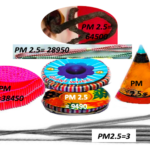“Proactive measures needed to keep the disease at bay”
New Delhi, September 19, 2018:
About 400 million people globally are infected with the dengue virus every year. Another 100 million get progressively sick and 2.5% of these patients die. Dengue is the fastest growing mosquito borne infection in the world. According to the WHO, about 40% of the world’s population is at risk of being infected due to environmental conditions and burden of disease. Most people who are infected have mild or no symptoms.
Dengue is both preventable and manageable. The risk of complications is in less than 1% of the cases and, if warning signals are known to the public, all deaths from dengue can be avoided.
Speaking about this, Padma Shri Awardee, Dr K K Aggarwal, President, HCFI, said, “Our roofs and verandahs or open spaces around the houses already are dumping grounds for old tyres, discarded drums, cans, utensils, etc. The mosquitoes, Aedes specifically, therefore have ample breeding sites. India being a dengue-endemic country, these habits need to change. One must learn to keep only what is required and discard what is not. The statement that Aedes egypti is a day-biter and only breeds in indoor freshwater is not entirely true. This variety of mosquito can breed and bite in the evening or night as well. Precautions need to be taken round the clock as the mosquito only recognizes light, not day or night.
Mosquito cycle takes 7 to 12 days to complete. If any utensil or container that stores water is cleaned properly once in a week, there are no chances of mosquito breeding. Mosquitoes can lay eggs in money plant pots or in water tanks on the terrace if they are not properly covered.
Adding further, Dr Aggarwal, who is also the Group Editor-in-Chief of IJCP, said, “It is customary to clean our houses during the festival season. This is also the time when we dispose of all the unwanted items lying in the house or give it away. A similar Diwali-like cleaning of houses can be customarily done before the onset of monsoons to remove or dispose of all the discarded old containers etc. in which water can collect and become breeding grounds for the mosquitoes.”
In a video on Medtalks. in, a free and complete healthcare learning and patient education platform, Dr K K Aggarwal speaks about his formula of 20 to differentiate between simple and severe dengue. The formula of 20 is: rise in pulse by more than 20; fall of BP by more than 20; difference between lower and upper BP less than 20.Presence of more than 20 hemorrhagic spots on the arm after a tourniquet test suggests a high-risk situation and the person needs immediate medical attention. Medtalksprovides continuous medical education (CMEs), learning and information to stakeholders including doctors, paramedics, nurses, allied healthcare workers, and patients.
Some tips from HCFI
- Do not let water stagnate in your house and the surrounding areas.
- Mosquitoes can lay eggs in money plant pots or in water tanks on the terrace if they are not properly covered.
- Mosquito nets/repellents should be used both during the day and at night.
- Wearing full sleeves shirt and trousers can prevent mosquito bites. Mosquito repellent can be helpful during the day.







